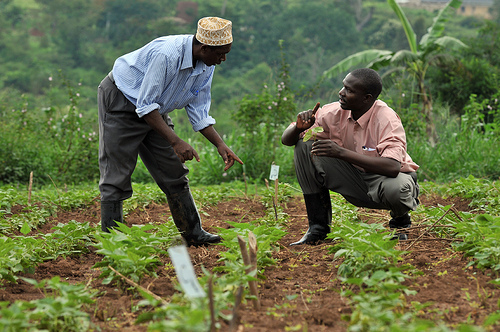Prof. Yemi Osinbajo, the Acting President, on Thursday said it was very important to give local farmers incentives to be able to compete favourably in international market.
He said this when he addressed the Presidential Enabling Business Environment Council (PEBEC) meeting in Abuja.
According to him, the reason the imported rice are cheaper than local rice is that the foreign producers get incentives to produce at cheaper rates.
He said that he was not worried much about the current high cost of rice in the country because it was a temporary challenge that would soon end.
“It is a short time challenge and we fully expected it even in agriculture policy.
“It is fully expected that Nigerian rice will be more expensive than imported rice.
“The simple reason is that the countries that export rice to us subsidise the production of rice.
“So, their rice will hit the Nigerian market cheaper than our farmers and millers can currently deliver.”
The acting president said that trade was a serious business and all countries of the world understood that trade created employment at home and made their countries to grow and make progress.
He said that other countries were subsidising to create jobs for their farmers and millers.
According to him, it is up to the country to take measures that will reverse the negative trend.
“If we continue importing, we are simply transferring our farmers and millers jobs to the countries that export rice to us.
“And that is why it is so important for us to understand that we must incentivize our own farmers.
“Currently, we are working with the Ministry of Agriculture, Ministry of Finance and the CBN governor and several others to put together an incentive regime for our farmers to ensure that our famers are also able to compete.
“Whatever it is that other countries are doing to make their products cheaper, we will do the same and we will even do better than that,’’ Osinbajo said.
He acknowledged that the Nigeria civil service and its professionals were the best in the world and could drive the reforms in business environment.
He, however, added that the problem the country had was to get things done and therefore asked the council to use the opportunity of the moment to perform.
He said that when the PEBEC set the 60-day plan for ease of doing business it discovered that all agencies were enthusiastic and then achieved a 70 per cent success.
Osinbajo said that MDAs ought to make businesses easier, but the experience over the years was that they created difficulties in the business environment.
He said that if the cost of settling cases and time spent were reduced it would make great impact in successful and quicker business transactions.
The acting president said that Nigeria’s business environment was one of the most stressful in the world and had hindered economic growth.
“If people don’t invest, no jobs are created no matter what we spend on our children’s education if they are not able to find jobs that really is a problem.
“If the business environment cannot work you simply can’t create the jobs and it means that many of our young people will be frustrated.
“There is a great deal of frustration out there because young people can’t find the jobs and the reason is that local and international investments are just drying up unless we are able to solve the problem,’’ he said.
The Minister of Industry, Dr Okechukwu Enelamah, Director General Budget, Ben Akabueze, and the FIRS Chairman, Babatunde Fowler, acknowledged the efforts the Federal Government had made to ease doing business in the country.
They stressed the need for the MDAs to stick to timelines in the implementation plan to enable the reforms to succed. (NAN) DCU/OFN/TA

